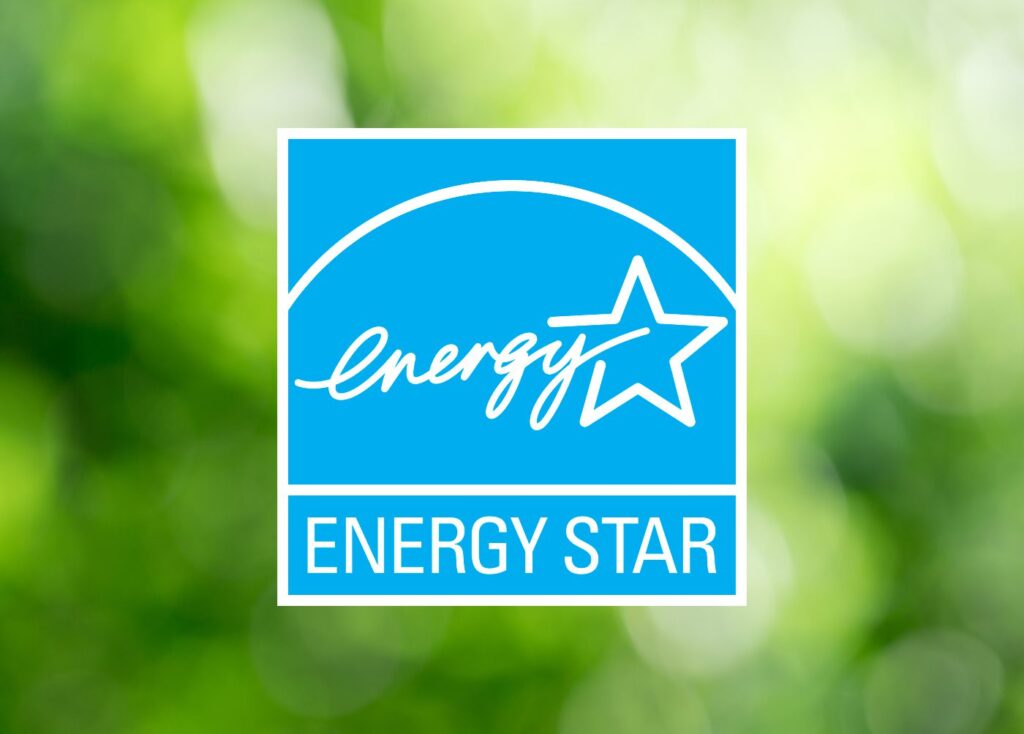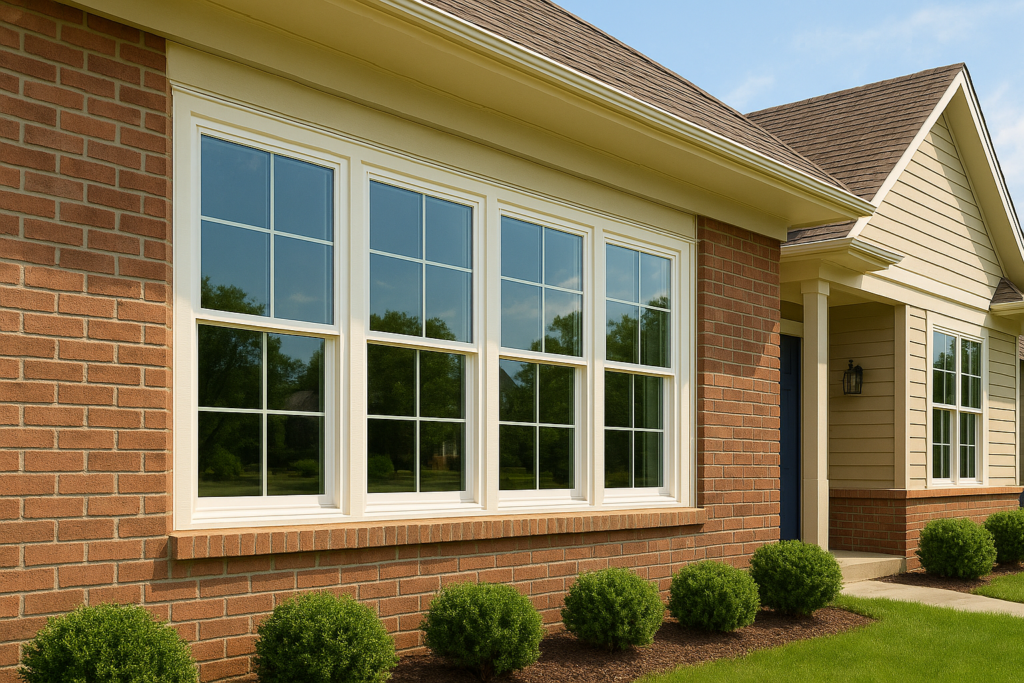14April 2025
Home improvement in New Jersey usually means one of two things: the roof or the windows. Upgrading your windows is one of the most impactful changes you can make. Not only do new windows enhance curb appeal, but they can also increase comfort within your home. But not all windows are created equal. With so many options on the market touting energy-efficiency, New Jersey homeowners should ask: What should I look for in energy-efficient windows?
Here’s what you need to know to make a smart, informed choice for your home:
Key Takeaways
- Energy-efficient windows can significantly improve indoor comfort, reduce energy bills, and enhance the value of your New Jersey home.
- Look for ENERGY STAR® certification and check performance ratings like U-Factor and SHGC to ensure the window suits South Jersey’s climate.
- Low-E glass combined with argon gas fills helps maintain stable indoor temperatures and reduces heat loss year-round.
- While double-pane windows are typically sufficient, triple-pane models may be worth the investment in noisier or windier areas.
- Proper installation and available rebates or tax credits are essential to getting the most value and performance from your window upgrade.
1. Look for the ENERGY STAR® Label
One of the easiest and most reliable indicators of window efficiency is the ENERGY STAR® label. This certification, backed by the U.S. Environmental Protection Agency (EPA), ensures that a window meets strict criteria for energy savings, tailored to the region where it’s sold. For New Jersey homeowners, this means selecting windows rated for the Northern Climate Zone, which prioritizes insulation and reduced heat transfer during colder months.
ENERGY STAR®-certified windows not only lower your monthly energy bills but also improve indoor comfort by minimizing drafts and maintaining a stable indoor temperature. They often feature high-performance glass, quality framing materials, and advanced spacers that reduce energy loss. Choosing certified products is a practical first step in making your home more efficient—and more comfortable year-round.

2. Check U-Factor and Solar Heat Gain Coefficient (SHGC)
Want to know how a window is going to perform? Look at the U-Factor and SHGC.
- U-Factor: This measures how well a window keeps heat from escaping. The lower the number, the better the insulation. In New Jersey’s colder months, a U-Factor of 0.30 or lower is recommended to help retain indoor warmth and reduce reliance on heating systems.
- SHGC (Solar Heat Gain Coefficient): This measures how much heat from sunlight passes through the glass. In South Jersey’s mixed climate, a moderate SHGC (between 0.25 and 0.40) is often ideal, as it allows for passive solar heating in winter while minimizing heat buildup during summer.
These ratings are found on the NFRC label (National Fenestration Rating Council), which provides a standardized way to compare different window products. Always look for this label—it helps you make confident, informed decisions.
3. Choose the Right Glass Type for New Jersey’s Climate
You want to make sure you are also choosing the right kind of glass. In New Jersey, it’s common to experience hot summers and cold winters, meaning you need a glass that can tolerate both. One of the most effective options is Low-E (low emissivity) glass, which has a thin metallic coating that reflects infrared heat. This means in winter, the heat stays inside your home, and in summer, the heat stays out.
Many efficient windows also use argon or krypton gas fills between the panes. These inert gases are denser than air and significantly reduce heat transfer. Argon is more common and budget-friendly, while krypton offers superior performance in tighter spaces, such as triple-pane windows.
For optimal comfort and cost savings, look for windows that combine Low-E coatings with gas fills—this combo helps keep your indoor temperature stable while reducing strain on your HVAC system.
4. Double vs. Triple-Pane Windows: What’s Worth It?
Knowing the difference between doube-pane and triple-pane windows will make deciding which kind to install much easier. Double-pane windows feature two layers of glass with an insulating gap between them—this is usually sufficient for most New Jersey homes, offering good insulation and noticeable noise reduction.
Triple-pane windows, on the other hand, include an additional layer of glass and a second gas-filled chamber. This structure provides enhanced thermal performance and greater noise control, making it a smart option for homes in particularly noisy or windy areas. However, they come with a higher price tag, so it’s important to weigh the long-term energy savings against the upfront investment.
In South Jersey, double-pane windows with Low-E coatings and argon gas generally offer the right balance of affordability and efficiency for most homeowners.
5. Frame Materials Matter
Did you know the window frame can also affect energy efficiency and durability? It’s true. There are three common materials to choose from: vinyl, fiberglass, and wood-clad. Here is what to know about each:
- Vinyl: A top choice for affordability and low maintenance. Vinyl frames are energy-efficient and resist moisture, making them ideal for New Jersey’s variable climate.
- Fiberglass: Known for its strength and thermal stability, fiberglass expands and contracts less than other materials, reducing the risk of seal failure. It tends to cost more but offers excellent long-term performance.
- Wood-Clad: These windows offer a traditional, high-end look with solid insulation. However, they require regular maintenance to prevent issues like rot or peeling—especially in humid or rainy conditions.
6. Proper Installation is Crucial
Even the best window on the market can perform poorly if it’s not installed correctly. Poor installation leads to drafts, water leaks, reduced energy efficiency, and even long-term structural issues like wood rot or mold. That’s why professional installation by an experienced local contractor is just as important as the product itself.
New Jersey’s weather patterns—hot summers, cold winters, and frequent storms—require an understanding of proper flashing, sealing, and insulation techniques. At TA Hughes, our installation crews take the time to ensure each window is level, sealed, and properly fitted to withstand South Jersey’s conditions. Quality installation gives your investment the long-term performance it’s meant to deliver.
7. Look for Rebates and Incentives
Installing energy-efficient windows doesn’t just help your utility bills—it may also qualify you for rebates and tax credits. Federal programs like the Energy Efficient Home Improvement Credit allow homeowners to claim up to 30% of the cost of qualifying windows, up to an annual limit.
Local New Jersey utility companies may also offer rebates or financing programs when you upgrade to ENERGY STAR-certified products. Before starting your project, check the ENERGY STAR Rebate Finder or speak with your local installer to learn what incentives may apply. Taking advantage of these programs can significantly reduce the cost of installation and boost your return on investment.

Get New Energy Efficient Windows from NJ Window Contractor, TA Hughes
Energy-efficient windows aren’t just about cutting heating and cooling bills. They are also about improving the curb appeal and indoor comfort. You can boost your home’s resale value easily by upgrading to energy-efficient windows. By knowing what to look for—performance ratings, materials, glazing types, and qualified installers—you’ll make a well-informed decision that pays off for years to come.
If you’re considering new windows in South Jersey, contact T.A. Hughes today to discuss the best options for your home and budget. Reach us at 856-845-8505 or by filling out the online contact form. For 35 years, we have served South Jersey homeowners like yourself. We’ll walk you through the process and ensure the job is done right.
